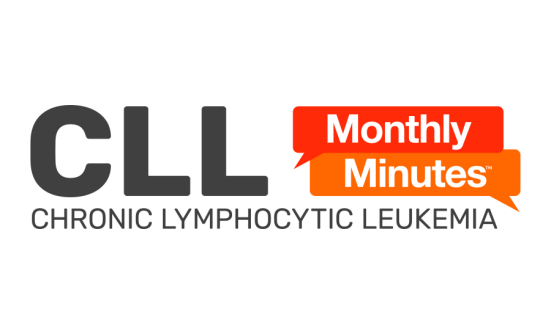Prior to the introduction of Bruton tyrosine kinase inhibitors, such as ibrutinib and acalabrutinib, and the B-cell lymphoma 2 inhibitor venetoclax, treatment for chronic lymphocytic leukemia (CLL) relied primarily on chemoimmunotherapy (chemotherapy combined with immunotherapy).1 Despite being the traditional standard of care, a number of patients had a poor response to chemoimmunotherapy and experienced early disease progression.2
Treatment options for patients with early progression after chemoimmunotherapy are generally limited, and these patients have a reduced overall survival.2 However, a 2017 interim analysis of the CLLM1 clinical trial showed that, for patients with early CLL progression after chemoimmunotherapy, the drug lenalidomide might delay further disease progression and death much better than placebo.2
Subsequent follow-up analysis of the CLLM1 trial has recently been published that looked at safety outcomes in the 89 patients with CLL who were enrolled in the study.3 Specifically, investigators reported 3 cases of B-cell progenitor acute lymphoblastic leukemia (B-ALL) that had been seen in patients who had received lenalidomide as a maintenance therapy.3 Although CLL is known to transform into other lymphomas, conversion from CLL to ALL is thought to be extremely rare, occurring in <1% of all CLL cases.4 Because approximately 5% of patients receiving lenalidomide in the CLLM1 trial developed B-ALL, the researchers and data safety monitoring board overseeing the study decided to make a deeper investigation into these cases.3 Ultimately, the decision was made to stop all treatment with lenalidomide and terminate the study early.3
Looking closely at the patient characteristics, all 3 patients who developed B-ALL had a history of high-risk or very high-risk CLL before they began their first treatment with chemoimmunotherapy.3 After chemoimmunotherapy, all 3 still had detectable numbers of leukemia cells in their blood, although the number of cells decreased during treatment with lenalidomide.3
In most previous reports of patients with CLL who later also developed ALL, it was determined that the ALL cells developed spontaneously and were unrelated to the original cancer.3 Similarly in this study, genetic analysis of 2 of the patients was unable to conclude that the B-ALL cells were related to the original CLL cells.3 However, for 1 patient, several mutations were shared by both the patient’s CLL and ALL cells, suggesting that they were closely related and that—instead of arising spontaneously—the patient’s disease had transformed from CLL to ALL.3
Given their results, along with the increasing information on the biological effects of lenalidomide, the investigators of the CLLM1 study concluded that there may be a potential relationship between lenalidomide use and the risk of developing B-ALL.3
References
- Astor L. The battle for the front line in CLL moves away from chemoimmunotherapy. Target Ther Oncol. 2020;9:73.
- Fink AM, Bahlo J, Robrecht S, et al. Lenalidomide maintenance after first-line therapy for high-risk chronic lymphocytic leukaemia (CLLM1): final results from a randomised, double-blind, phase 3 study. Lancet Haematol. 2017;4:e475-e486.
- Fürstenau M, Fink AM, Schilhabel A, et al. B-cell acute lymphoblastic leukemia in patients with chronic lymphocytic leukemia treated with lenalidomide. Blood. 2021;137:2267-2271.
- Kaur M, Nibhoria S, Tiwana K, et al. Rapid transformation of chronic lymphocytic leukemia to acute lymphoblastic leukemia: a rare case report. J Basic Clin Pharm. 2016;7:60-63.















